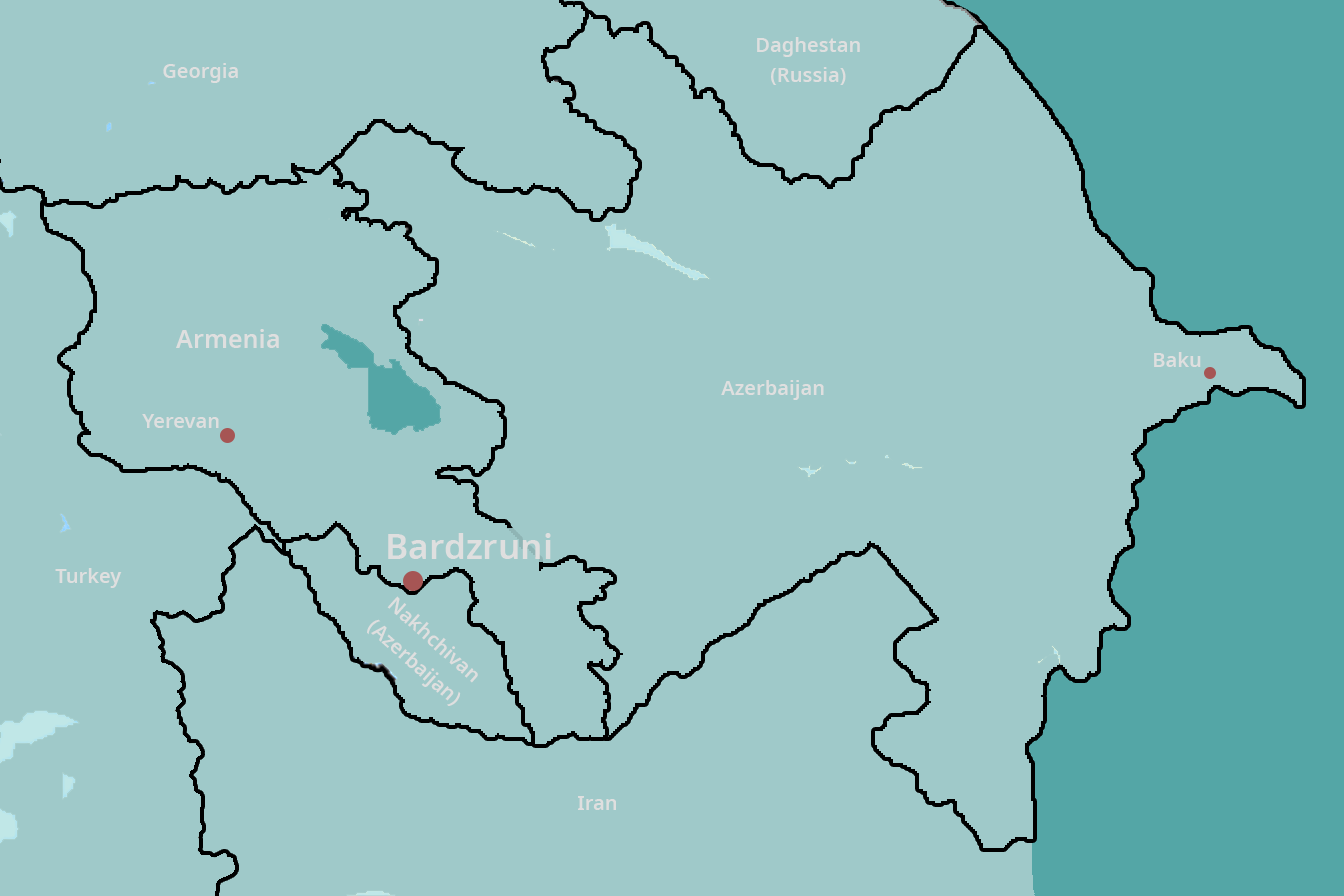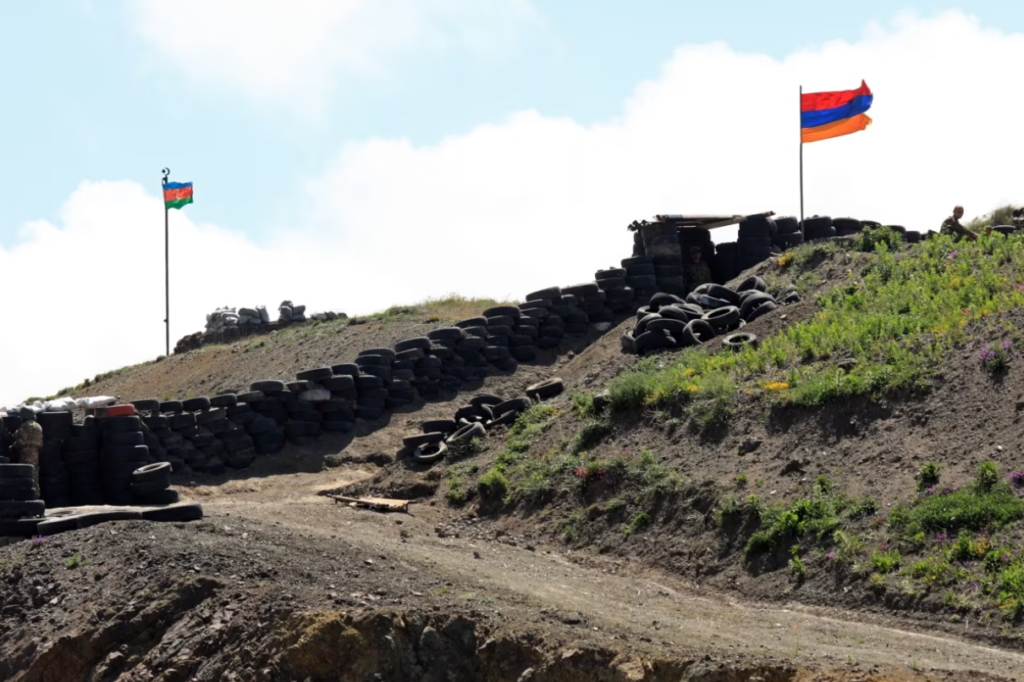An Armenian soldier has been killed reportedly by Azerbaijani sniper fire near the border.
Armenia’s Ministry of Defence reported that Gerasim Avetik Arakelyan was fatally wounded by Azerbaijani gunfire in the Vayots Dzor Province in southern Armenia on Monday.
They accused Azerbaijan of attacking an Armenian position in the village of Bardzruni, which lies close to the border with the Azerbaijani exclave of Nakhchivan.
On Tuesday, Armenia’s Investigative Committee stated that Arakelyan died while being transported to the hospital after being wounded by Azerbaijani sniper fire. It added that the soldier was performing engineering work in Bardzruni.

The Ministry of Foreign Affairs condemned the soldier’s death and accused Baku of trying to provoke ‘a new escalation’.
‘By such provocations on the border, as well as by continuously rejecting the offers of various international actors to continue the negotiations, the Azerbaijani side is trying to delay and deadlock the peace process’, read the ministry’s statement.
Edmon Marukyan, Armenia’s ambassador-at-large, called on Washington, Paris, and the EU to condemn the attack. He said Azerbaijan was ‘avoiding negotiations and initiating new border killings, disrupting the entire peace process’.
A serviceman of Armenia’s armed forces was fatally shot by a sniper of Azerbaijan’s armed forces. Azerbaijan's understanding of peace is somewhat different than our understanding of the peace process. All international partners involved in the peace process must unequivocally…
— Edmon Marukyan (@edmarukyan) December 4, 2023
On Tuesday morning, the Azerbaijani Foreign Ministry said it ‘vehemently rejected’ Yerevan’s accusations calling it ‘misinformation and bogus allegations’.
The Ministry also accused Armenia of having ‘delayed the peace agreement proposals for more than 70 days’ and of creating ‘artifical tension’.
‘With such statements, Armenia also intends to generate fake tension in border areas and attract the attention of third-party states’, read Baku’s statement.
Following the reported attack, Toivo Klaar, the EU’s South Caucasus representative, stated that it was ‘essential that calm prevails on the ground and decisive progress is achieved at the negotiating table’.
‘Not nuclear physics’
The killing comes as long-delayed peace talks between Armenia and Azerbaijan continue, with officials from both countries repeating claims that a deal was close to being struck.
In late October, Armenian Prime Minister Nikol Pashinyan said that Yerevan and Baku were in agreement on the ‘three main principles of peace and normalisation of relations’.
However, Pashinyan had stated earlier that month that while Armenia was ready to sign a peace treaty with Azerbaijan by the end of the year, Baku was attempting to provoke a ‘new war’ in the region or stake claims to Armenian territory.
Over the past few months, Azerbaijan has appeared to favour concluding a peace deal mediated by Russia, Iran, and Turkey; they sat out several Western-mediated meetings throughout October, leading Yerevan to raise doubts about Baku’s willingness to conclude the peace process.
In mid-November, Azerbaijan stated that Armenia had been ‘delaying’ presenting its own amendments to the proposed peace agreement for over two months, ‘despite the public statements about its readiness to sign a peace treaty by the end of this year’.
‘To what extent is Armenia ready for that is a subject of serious questions now. The text of peace agreement is not, by essence, nuclear physics’, wrote the Assistant to Azerbaijan’s President, Hikmat Hajiyev, on X.
‘The text of [the] peace agreement could be concluded sooner through intensive bilateral negotiations. The ball is in the court of Armenia!’ he concluded.
On 22 November, Armenia submitted its sixth amended version of the peace deal to Azerbaijan, with the Foreign Ministry stating that they ‘considered it more effective to present it to the Azerbaijani side during the scheduled meetings’.
‘However, to prevent attempts to deadlock the negotiation process and achieve lasting peace in our region, the Republic of Armenia constructively sent its comments on the draft agreement.’
Armenia’s Foreign Ministry also responded to Azerbaijan’s proposal to hold peace negotiations on a state border or in a ‘mutually acceptable area’, offering to hold a meeting of the countries’ state border delimitation committee, which took place on 30 November.




 5 December 2023
5 December 2023



